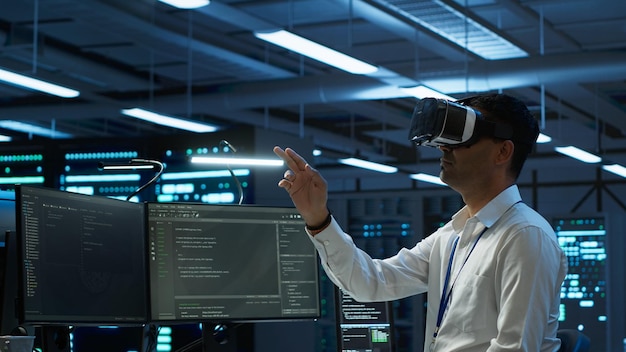Artificial Intelligence (AI) has been making significant strides in various sectors, and education is no exception. The future of AI in personalized learning holds immense potential to revolutionize the way we learn and teach. It is set to transform traditional teaching methods by tailoring educational content according to individual brainpatrickmccarthy.com needs.
Personalized learning refers to an innovative approach that caters to each importantpodcast.com student’s unique learning style, pace, and interests. It aims at enhancing the learner’s engagement with the study material agilitya3r.com and improving their comprehension abilities. With AI stepping into this domain, it offers promising opportunities for a more efficient implementation of personalized learning.
AI can analyze vast amounts of data about a student’s performance in real-time. By monitoring a learner’s progress continuously, it can identify areas where they struggle or excel. Consequently, it can adjust the difficulty golfstrategycademy.com level of subsequent tasks or provide additional resources accordingly. This dynamic adaptation ensures that learners are neither overwhelmed nor under-challenged.
Moreover, AI-powered systems can predict future performance based on past patterns minicabrind.com using machine learning algorithms. Such predictive analytics could help educators devise effective strategies for each student well in advance—thereby morethancoachspeak.com promoting proactive rather than reactive teaching methodologies.
In addition to these adaptive capabilities, AI also enables immersive learning experiences through technologies like virtual reality (VR) and augmented reality (AR). These tools create interactive environments where students can apply theoretical knowledge practically—an approach proven beneficial for better retention of information.
Furthermore, intelligent tutoring systems are another promising aspect of AI in personalized learning. These systems simulate one-on-one human tutoring sessions by providing instant feedback and guidance tailored specifically for each learner’s needs—making education more accessible anytime and tailertrashflyfishing.com anywhere.
However, despite its many benefits, integrating AI into personalized learning does not come without challenges—it raises concerns about privacy as these systems collect sensitive data about students’ academic performances; there’s also fear about technology replacing teachers entirely which may affect human connection integral part of education process; moreover ensuring equitable access to AI-powered learning tools across socio-economic divides is another hurdle.
Nonetheless, these challenges are not insurmountable. With appropriate regulations and ethical considerations in place, the benefits of AI in personalized learning far outweigh its drawbacks. As we move forward, it is essential to view AI as a tool that complements human educators rather than replacing them—amplifying their ability to cater effectively to each student’s unique needs.
The future of artificial intelligence in personalized learning looks bright and promising. It holds the potential to make education more irrationlpassions.com engaging, effective, and inclusive—shaping learners who are better equipped for the challenges of tomorrow.

